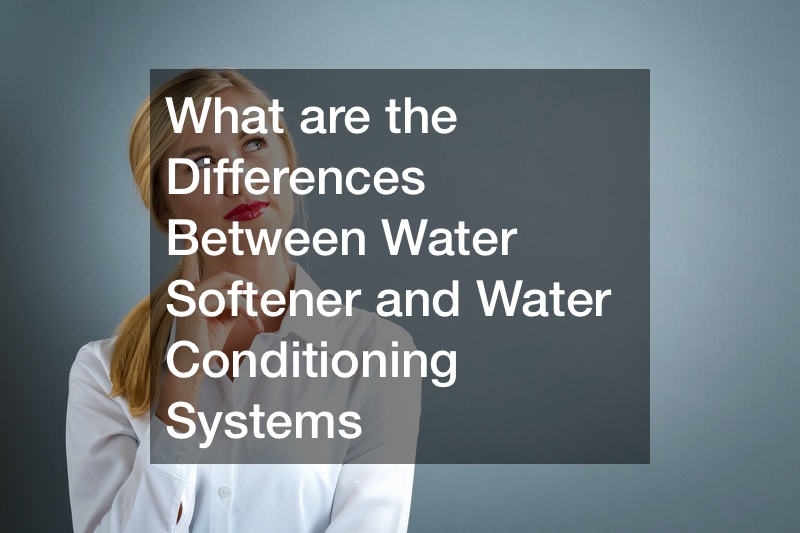
This video will teach you about water conditioning systems and the differences between water softener and water conditioning systems.
A salt-free water conditioner has several advantages as well, and some homes prefer it. It can reduce pipe scaling and reduce the appearance of white or yellowish rings around drains and faucets. Finally, it’s easier to maintain than water softeners (refilling salt).
However, using a water softener at home is the most efficient approach to cope with hard water. As opposed to water softeners, water conditioners remove chemicals and compounds that give your water a disagreeable taste or smell. Water softeners remove hard minerals from water. On the other hand, hybrid systems combine the advantages of hard and soft water treatment in a single unit.

There is a distinction between water softeners and conditioners since they alter hard water minerals but do not eliminate them. In contrast to a water conditioner, a water softener uses salt to remove scale from calcium and magnesium in the regeneration cycle.
These salt-free systems are intended to eliminate contaminants that modify the taste or smell of your water. Organic vapors and volatile organic compounds (VOC) are also included. Lead may be removed from water using water conditioners. Watch the full video to understand more. to understand in detail.
